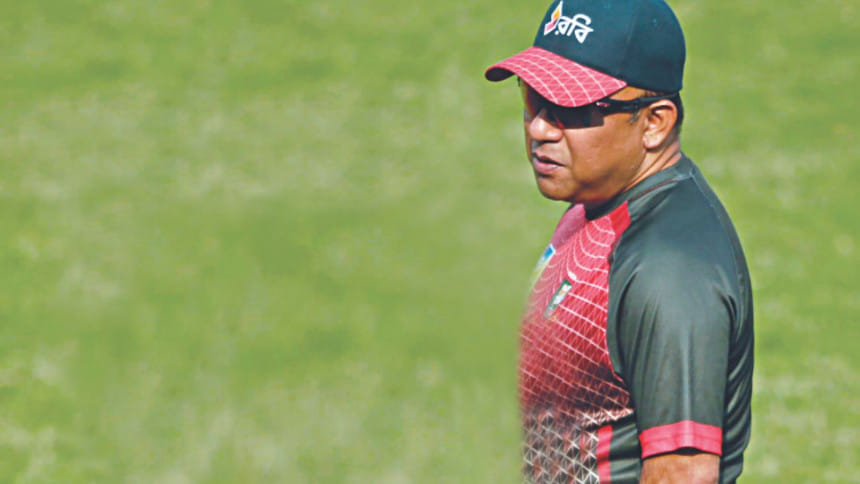What Mahmud's outburst tells us

Among the grievances that the public and players may have against former national coach Chandika Hathurusingha, the Sri Lankan now in charge of his country's national side never did what Bangladesh's current technical director Khaled Mahmud did on Monday when he blasted his players and also the media for their poor results against Sri Lanka. Furthermore, he actually seemed to be rethinking his future in Bangladesh cricket after one bad string of results and the resultant media backlash.
After Hathurusingha left his post prematurely last November, former national captain Mahmud -- who holds numerous posts within the Bangladesh Cricket Board and is also Abahani's coach -- was made technical director, effectively the interim coach for the ODI tri-series and the Test and T20I series against Sri Lanka. Initially, before a ball was bowled, there were fighting words from Mahmud saying that they were aiming to win the ODI and Test series.
Fast forward a month later, during which there were humiliating losses in the tri-series and the second Test, and Mahmud was throwing his toys out of the proverbial pram during an animated exchange with the media during team practice on Monday. At one stage during the talk with reporters when asked about whether he will be in his position for next month's T20I tri-series in Sri Lanka, he gave a quite confusing answer: "The board will determine that, because the board gave me this position. I never want to say that I will not work, but if a Bangladeshi is performing the role that is the biggest problem. That I am still here after the Bangladesh loss is the big thing. A lot of big coaches, including Chandika, had bad results at first."
Having repeatedly said that the coaches are not the ones on the field and Bangladesh's players could not handle the pressure and played bad cricket, he finally admitted that there could have been problems in coaching as well. "I can take bad results; it can happen that Bangladesh played badly because of some mistakes in the coaching plans, but there are other aspects as well.
"Personally, I am not interested any more. Actually I don't feel like working in Bangladesh cricket anymore; it is seeming dirty to me."
When pressed on what exactly seemed 'dirty', he directed his ire at the media. There was an article in ESPNCricinfo on the first day of the second Test that, while querying the inexplicable decision to rest Mosaddek Hossain -- who helped draw the first Test through a patient innings -- in favour of the unreliable Sabbir Rahman, pointed out Mahmud's dual role as national technical director and coach of Abahani, for whom Mosaddek played after being released from the national squad.
"By dirty I mean... the way things are written in the media. A big obstacle in our cricket... there is also an issue with the media as we are becoming fishy. Whether our cricket is stuck because of the media, we have to look into that as well," Mahmud said on Monday.
It is not immediately obvious, or even after deeper contemplation, how the media can actually adversely affect performance on the field. If the aforementioned article was in fact responsible for drawing Mahmud's ire, does it not fall in the media's purview to inform the public of existing conflicts of interest, even if those conflicts did not play a part in the Mosaddek decision?
The bigger question, of course, is that even if any report had defamed Mahmud, does it warrant that someone holding a high office in the country's cricket will throw a tantrum? Hathurusingha oversaw all-loss tours of West Indies, New Zealand and South Africa and by the last tour, the media was criticising him extensively. Indeed, one of the complaints against him in South Africa was that he was not facing up to the media. That seemed like an evasion of accountability by the man in charge, but at least he did not play the blame game and reveal instability to the public.
Mahmud's outburst, on the other hand, seemed to have confirmed what most suspected -- that there was a scarcity of cool heads in the dressing room after setbacks and that the man in charge was as culpable as anyone.

 For all latest news, follow The Daily Star's Google News channel.
For all latest news, follow The Daily Star's Google News channel. 



Comments